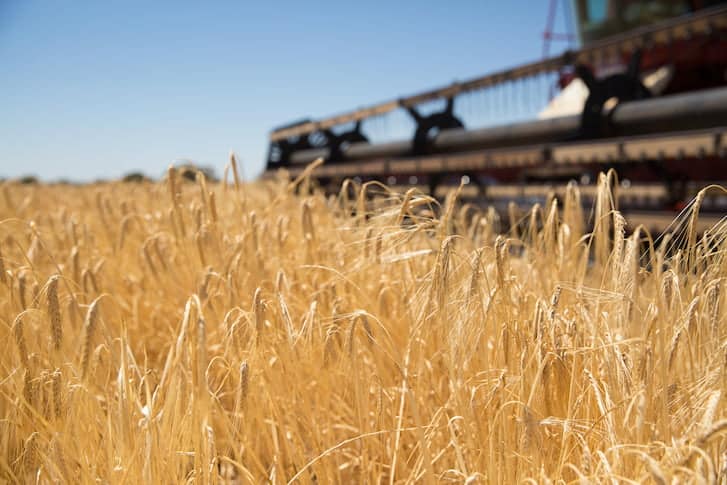 Agricultural, fisheries and forestry (AFF) exports from WA reached a historic high of $15.4 billion in 2022, up by 68% (in 2022 dollars) compared to the 2019-21 average.
Agricultural, fisheries and forestry (AFF) exports from WA reached a historic high of $15.4 billion in 2022, up by 68% (in 2022 dollars) compared to the 2019-21 average.
WA’s share of Australia’s AFF exports has increased steadily since 2017, making up a record 20% in 2022.
AFF is the State’s second largest export sector, with 4% of exports.
WA’s consecutive record grain and oilseed harvests in 2021 and 2022, at 24 million tonnes and 26.1mt respectively, produced bountiful supplies of grain for export last year.
According to the Department of Primary Industries and Regional Development (DPIRD), WA’s main AFF exports in 2022 were:
Wheat: The largest export product for the sector, valuing $5.5b and accounting for 36% of WA’s agrifood and beverage exports. Key markets were China ($1.4b), Indonesia ($962 million) and the Philippines ($766m).
Canola seeds: Valued at $3.75b and 24% of agrifood and beverage exports, primarily to Germany ($1.08b) and the United Arab Emirates ($597m).
Barley: Worth $1.9b and 12.3% of industry exports. Key markets were Saudi Arabia ($852m) followed by Japan ($303m). DPIRD says after the China market effectively closed in 2020, WA barley exports expanded to new markets such as Mexico and Jordan, and increased market share in established markets.
Wool: Raw exports totalled $686m, with 93% sent to China.
Sheep meat: Valued at $625m, with China the largest market (31.5%).
International influences
Some of WA’s international export competitors experienced market reductions last year which created more demand for WA AFF products.
This included Argentina which endured a prolonged drought, causing one of the least productive years in recent history. The war between Ukraine and Russia stifled Ukraine’s capacity to harvest and export.
The Australian Export Grain Innovation Centre says international sea freight rates for the export of containerised and bulk grains declined in 2022, making Australian grain more affordable to nearby Asian and Middle East markets.
Export grain demand from South-East Asian countries increased, driven by population per capita income growth.
However, CCIWA Business Confidence data from 2022 shows an average of 25% of agribusinesses reported international trade tensions being a business barrier, most likely related to tensions with China.
AFF exports over three decades
From 1988 to 2022, grains and meat have replaced wool as WA’s largest AFF exports.
Over the past three decades, wool exports have trended down – going from WA’s primary AFF export in 1988 to third in 2022. Wool prices rebounded in 2022 after COVID-19 disrupted global textile supply chains.
Whereas there has been a major shift towards wheat exports, increasing more than threefold. This has been driven by several record crop production years and recent high global prices.
There has been a gradual increase in beef and sheep meat exports, supported by high prices.
If you are looking for support or advice in business, investment or trade, contact our experienced International Trade and Investment Centre team at [email protected].






